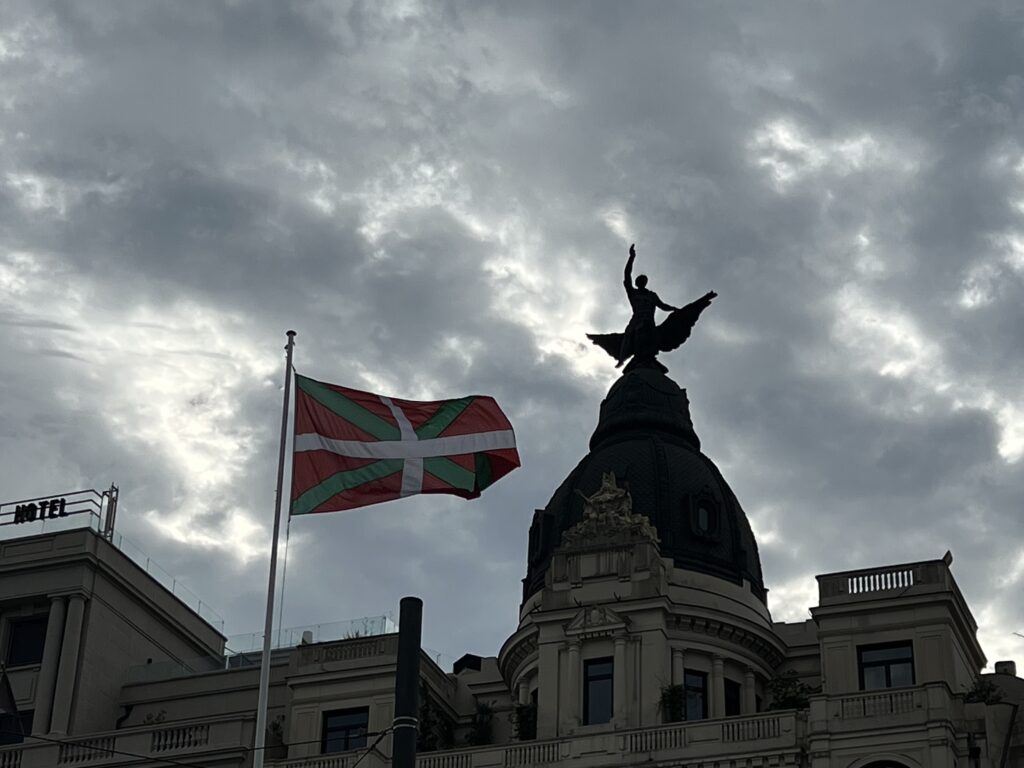One of my goals with being abroad this year in Spain is to visit more parts of the country. When I lived here as a student I was able to travel a bit around Spain and I got to learn more about the various regions and cultural differences (accents, food, traditions, etc.). Amongst those regions I was able to visit: (1) Galicia, (2) Cataluña, (3) Castilla y León, (4) Madrid, (5) Andalucía, (6) Castilla la Mancha, (7) Islas Baleares, and (8) Islas Canarias. This leaves me with nine other regions I still need to visit.
So I took it upon myself to finally visit the Basque Country (País Vasco) for a long weekend in October, since my original plan to visit this region three years ago (literally March 2020) was thwarted by covid.
So in this post, I will talk a bit about what I was able to see and discover in the north of Spain.
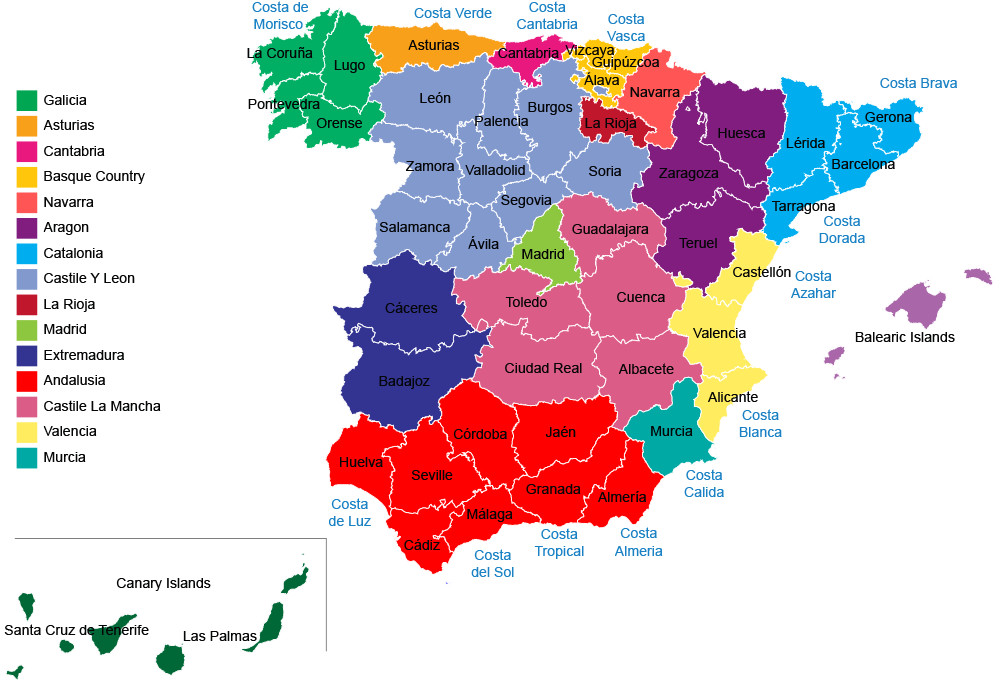
Bilbao
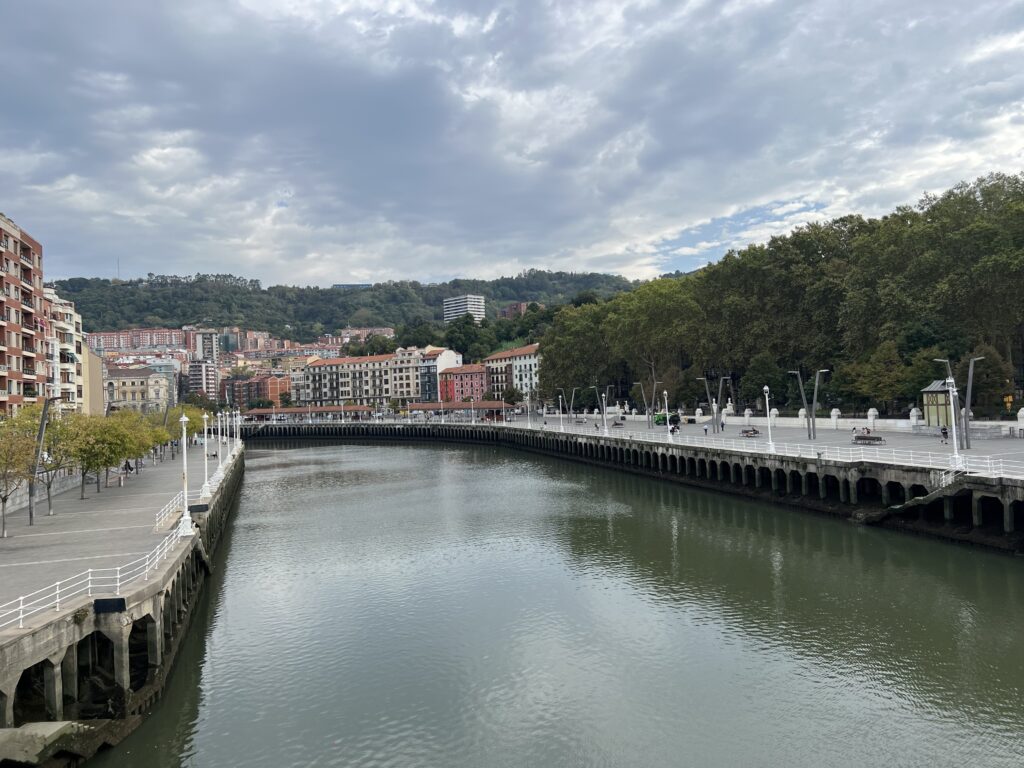
I traveled from Madrid to Bilbao on the Renfe train Thursday night and stayed at a youth hostel not too far from the Renfe train station until Monday afternoon; which was very convenient for walking around the downtown area and being near the metro as well. From here I was able to head out to other places in the Basque Country such as Gernika, Muxika, and Gaztelugatxe. I also wanted to head to San Sebastián, but unfortunately it did not work out since there were not many trains or buses available that worked in my favor. Likely since it was a ‘puente’ weekend I imagine that many people were traveling around as well. So I decided to stick around Bilbao and leave San Sebastián for another potential visit to the north.
Most of my time in Bilbao was spent walking around the city, trying pintxos (absolutely amazing!), and visited the Guggenheim museum. I am also absolutely fascinated by the Basque language, it is the only language in Spain not tied to any Romance origins and to this day linguistics have no idea where the language originated from as there is no known language that shares a root with Euskera. Theories range from a foreign tribe that came into Spain to a local tribe whose sister languages died out early on and leaving Basque as the only survivor on the Iberian peninsula.

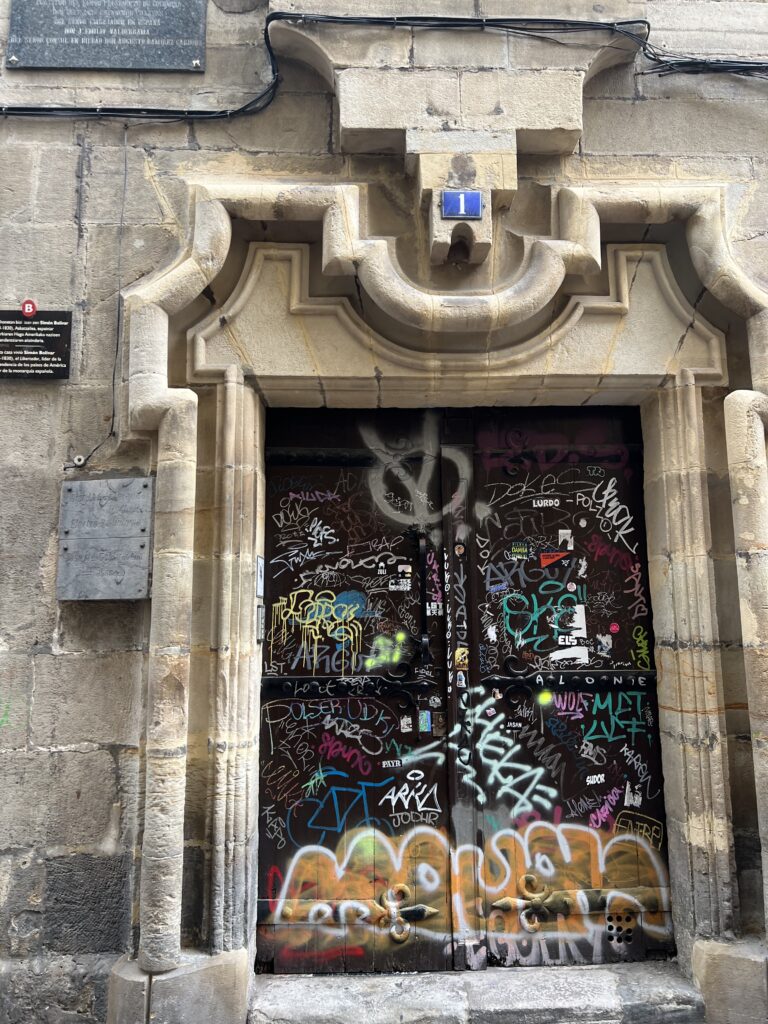



Gernika/Guernica

With the Barik transport card I was able to head out to nearby towns (at a cheaper price) and explore more of the Basque country. My trip to Gernika was more of a historical exploration. This town was made famous due to Pablo Picasso’s piece titled “Guernica” produced in 1937.
The town had been bombed during Franco’s dictatorship of Spain and Picasso produced a piece that hinted at this event without using or referring to bombs in his artwork. For a long time “Guernica” had been exiled out of the country, like the artist, but now the piece can be found in the Reina Sofía museum here in Madrid.
Gernika is a fairly small town and though there were a few places to visit (a museum and a park) I did not spend much time in this town because A) it had started drizzling and I did not want to get caught in the rain (again) and B) the train heading back towards Bilbao was arriving soon and I did not want to miss it and then have to wait a long time for it.
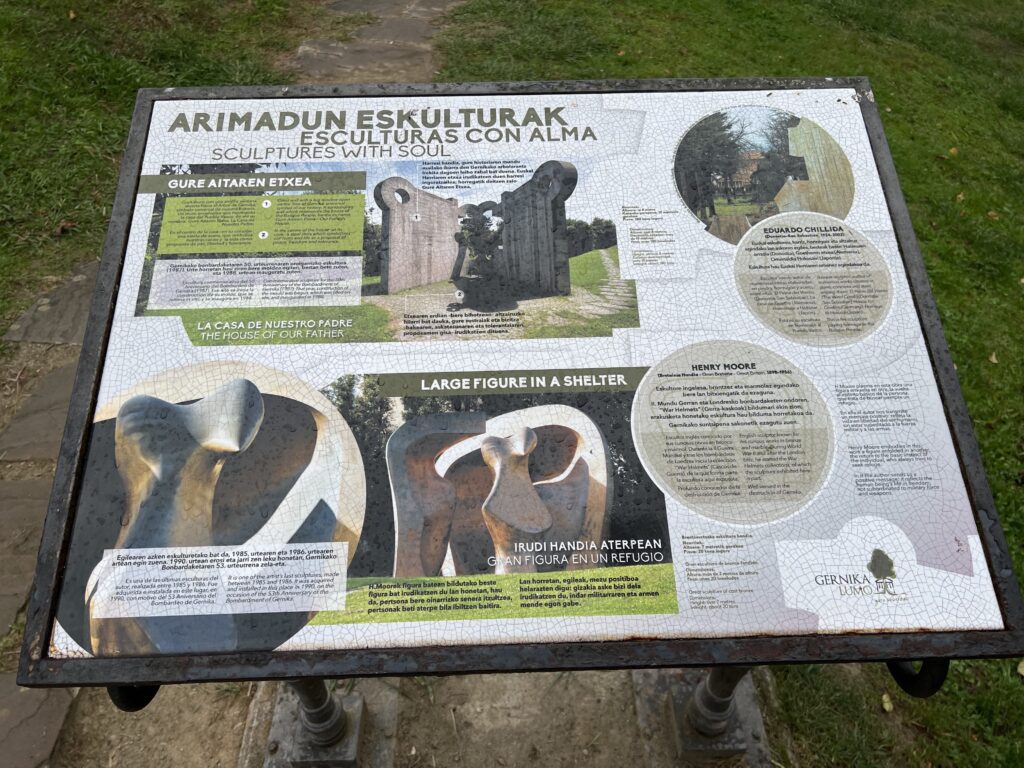
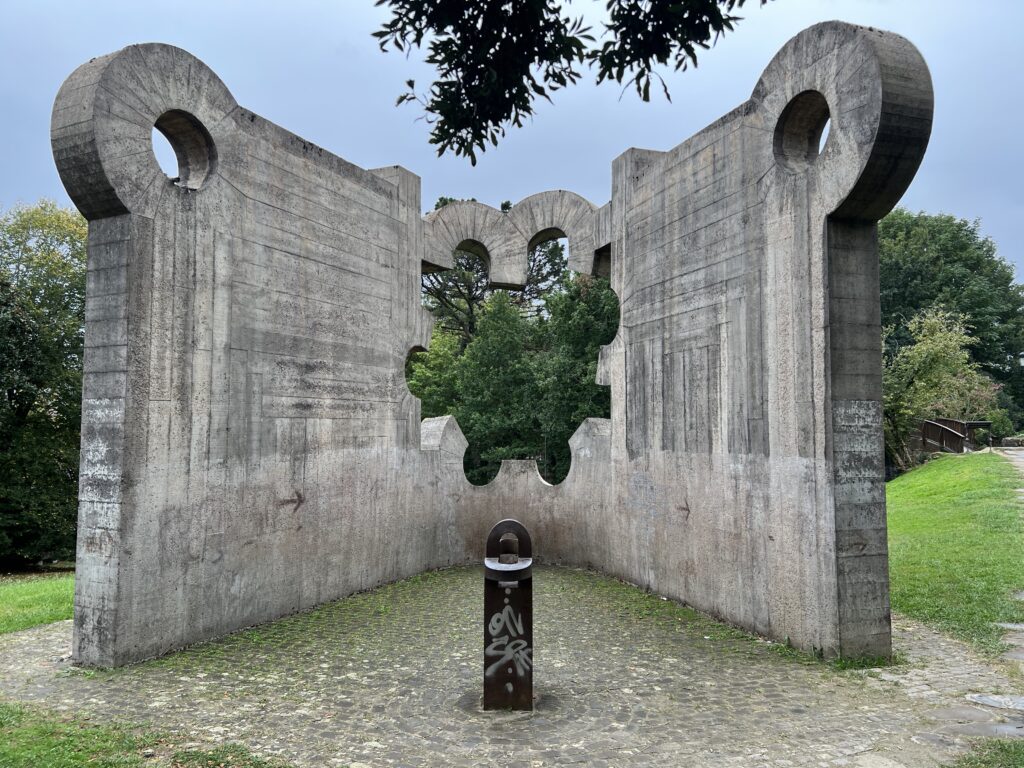
(Eduardo Chillida)
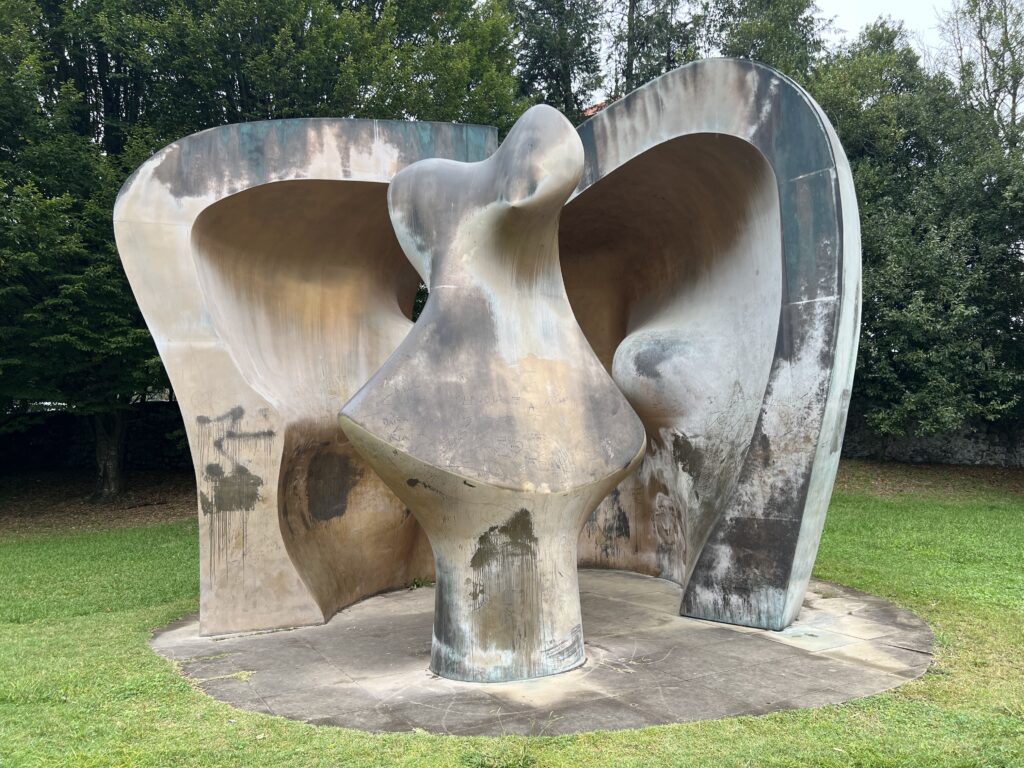
(Henry Moore)
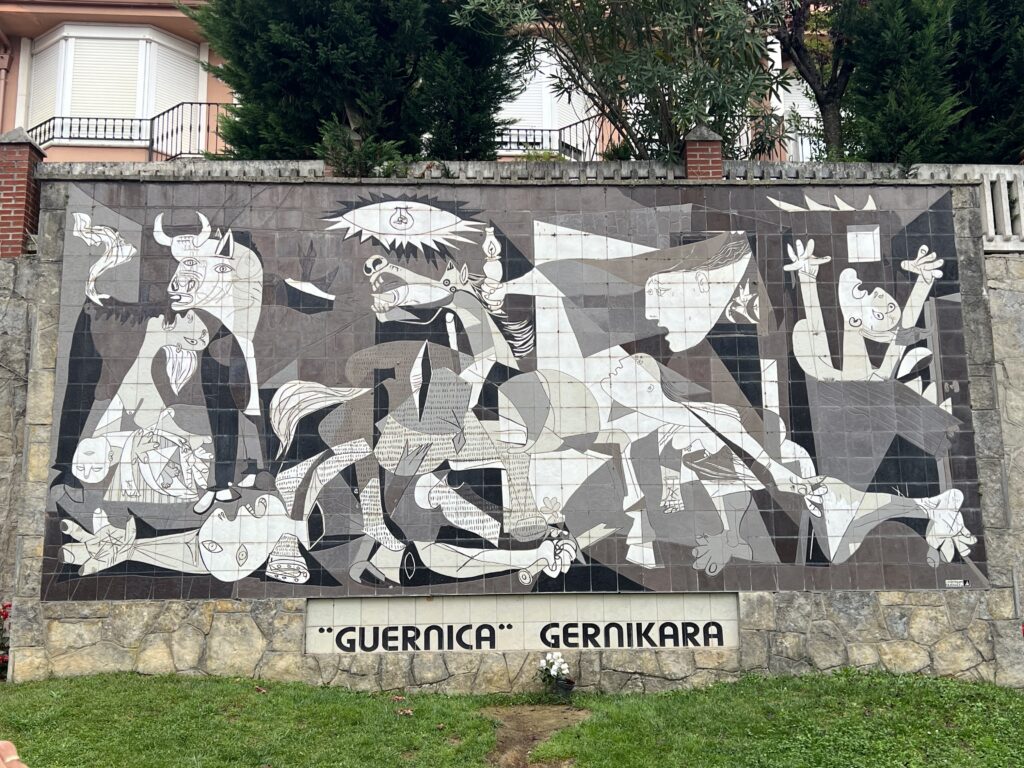
Muxika
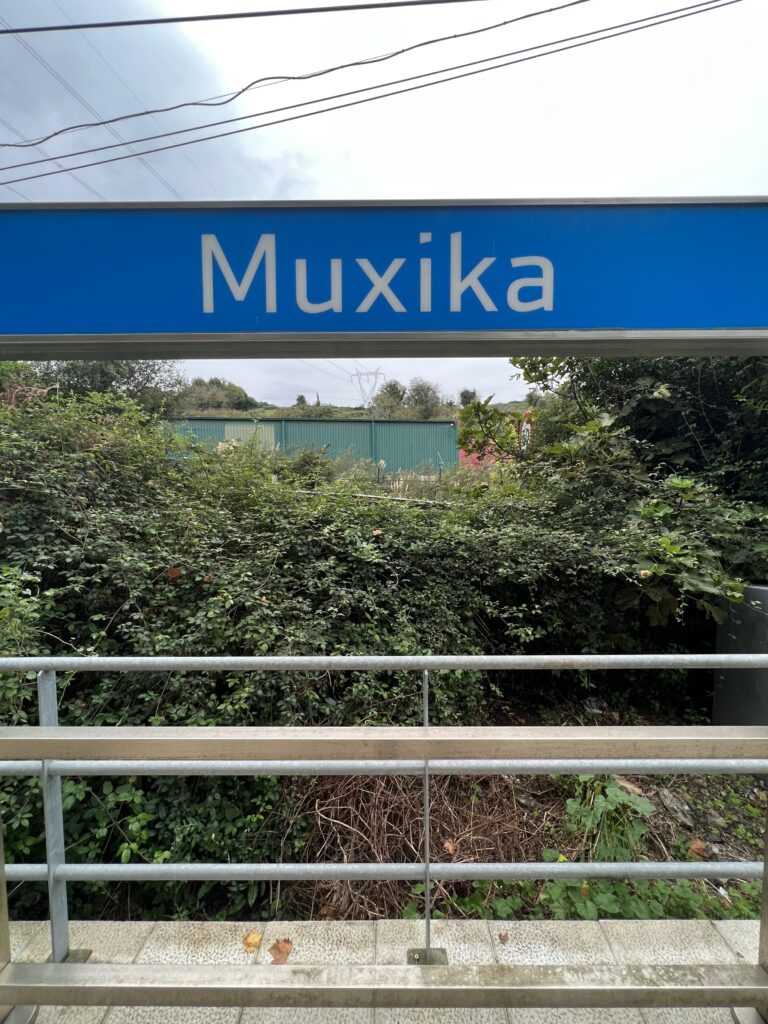
My visit to Muxika was based more on genealogy. On my father’s side of the family there is an ancestor who has the surname “Mojica” also spelled as Mogica, Muxica, and lastly, Muxika. The ancestor in question is my 4th great-grandfather Valentín Mojica. Valentín lived and died in Toa Alta, Puerto Rico, unfortunately his death certificate does not list the names of his parents so this is currently where I am stuck with his genealogy.
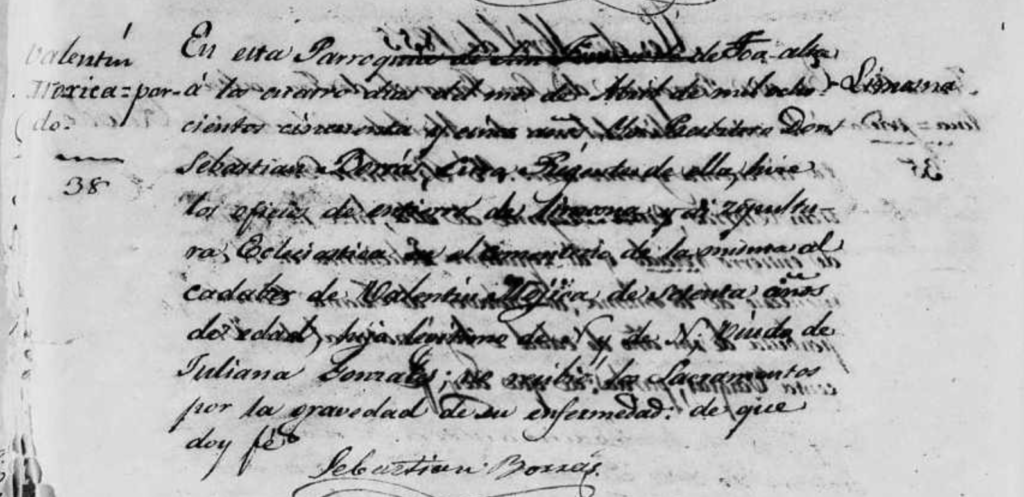
Though currently there is no known genealogical connection to this town, I wanted to visit nonetheless because it does not seem to be a very common name. Its origin of the surname apparently points to the Basque language and is apparently tied to peaches.
The town is extremely small (population a little over 1,500) and I spent maybe a total of 20 minutes in it. I just wanted to get a feel for a smaller town and visit a place where my ancestor’s surname is similar to. I have yet to figure out where my Mojica/Muxica ancestors are from but it was cool to walk around a town with their surname.


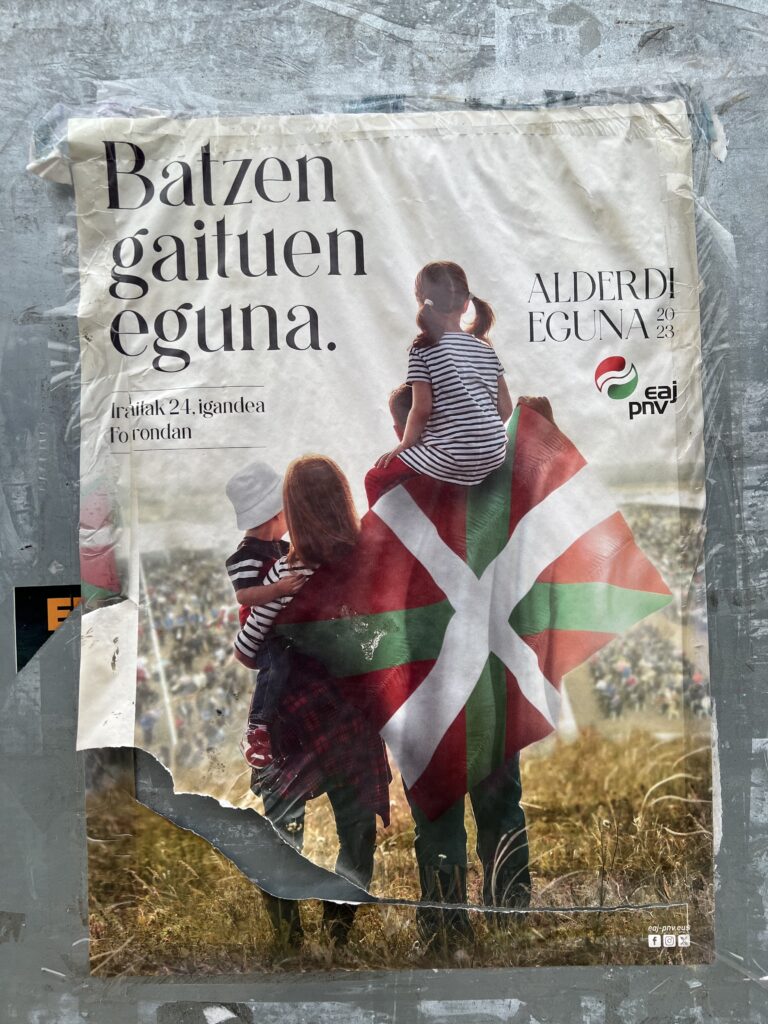

Gaztelugatxe
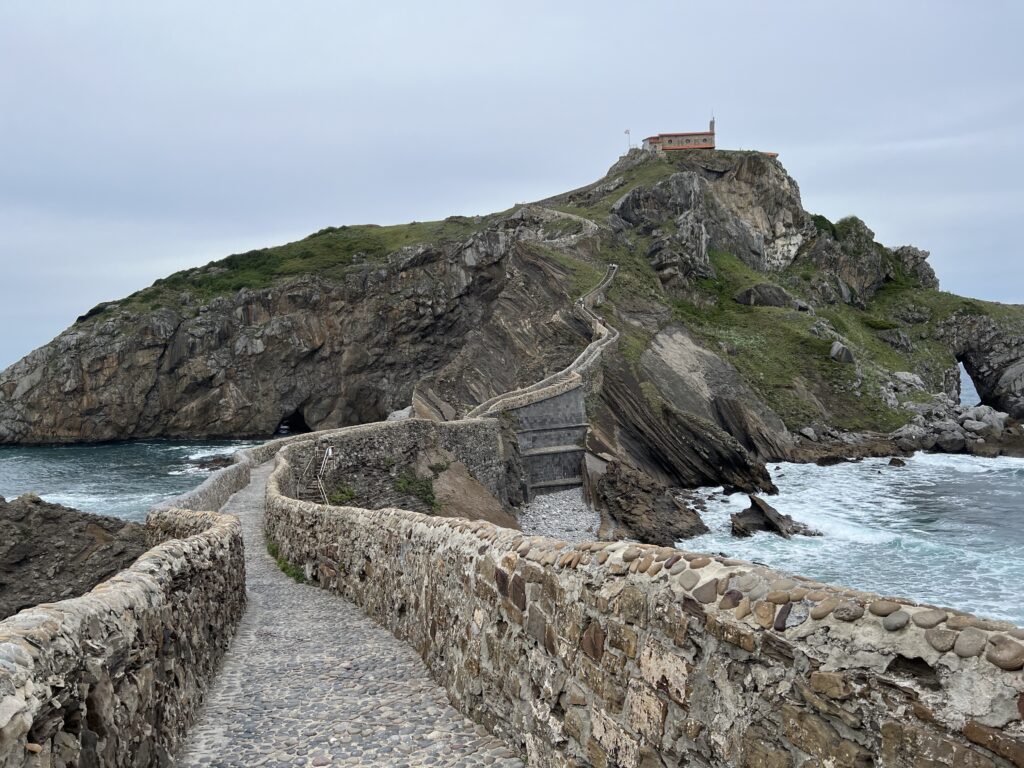
This last side trip to Gaztelugatxe was purely for touristic purposes. I took a bus out to the nearby town of Bakio and then from there began to hike towards Gaztelugatxe. In order to enter you need to have a ticket reservation (free), I am guessing this is a way to control how many people enter at one given time in order to avoid too much foot traffic. Luckily, I was able arrive a bit before my reservation, rest, and then enter during my time block. I was extremely fortunate that it did not rain this day and so I was truly able to enjoy my visit.
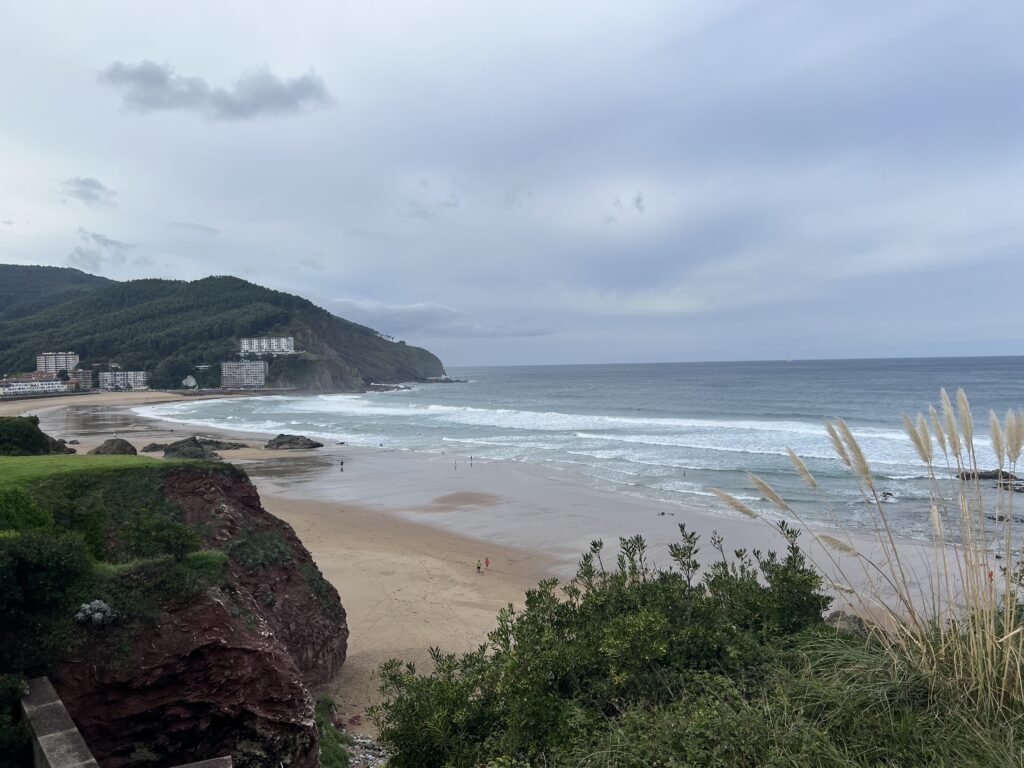
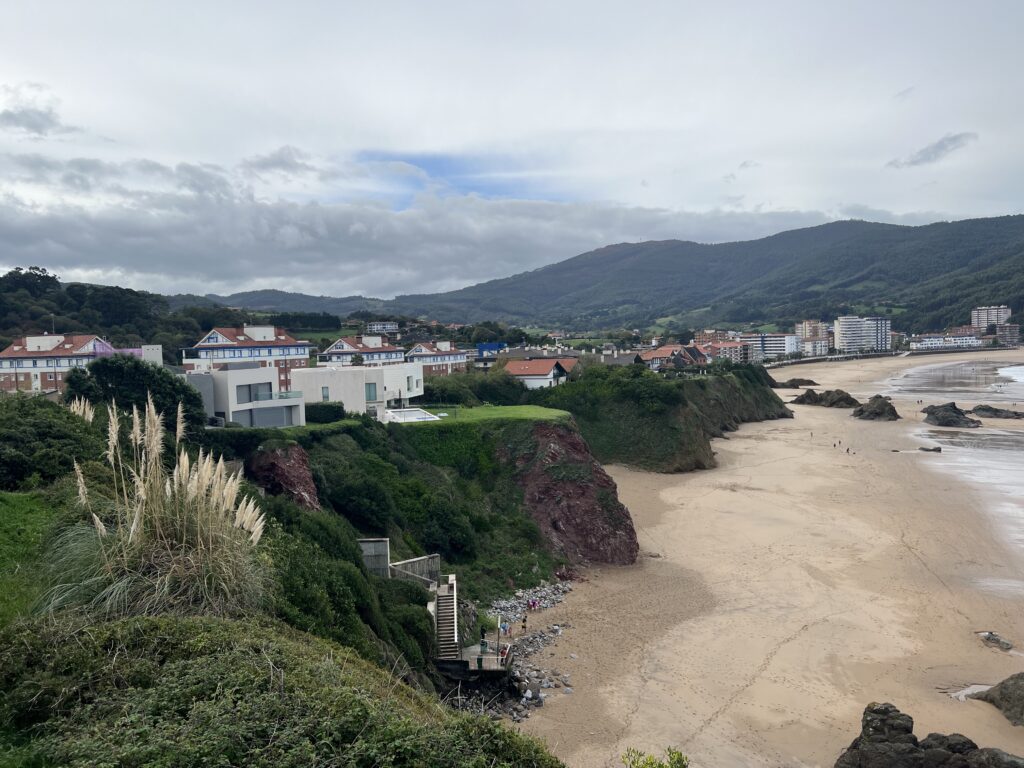
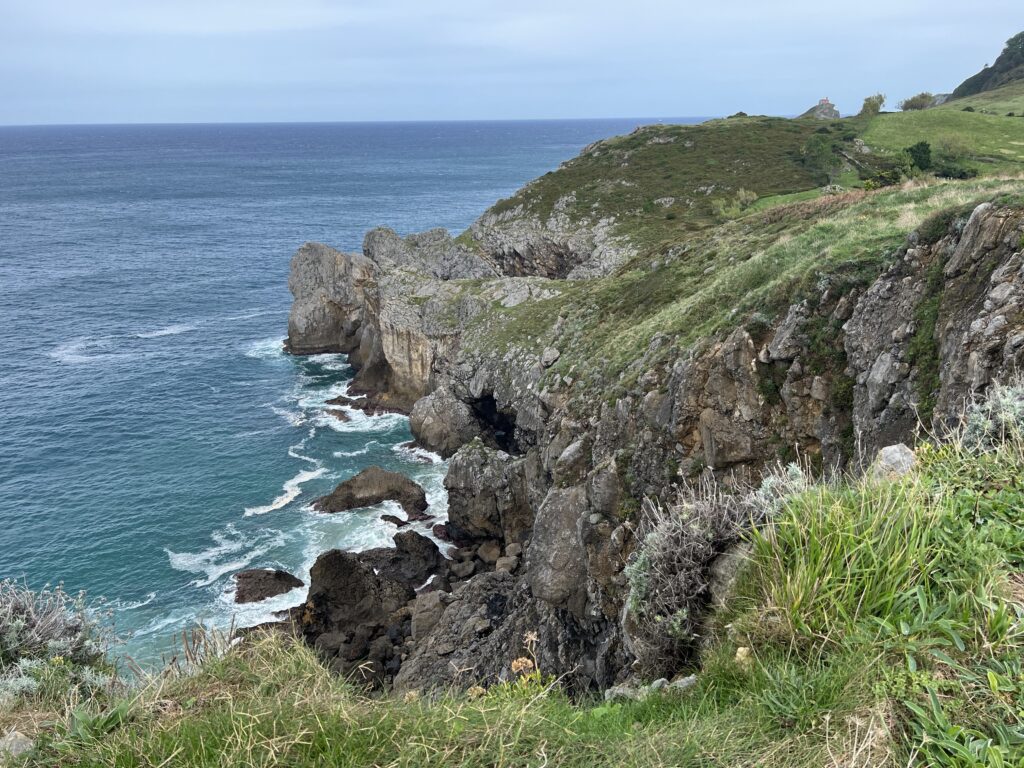
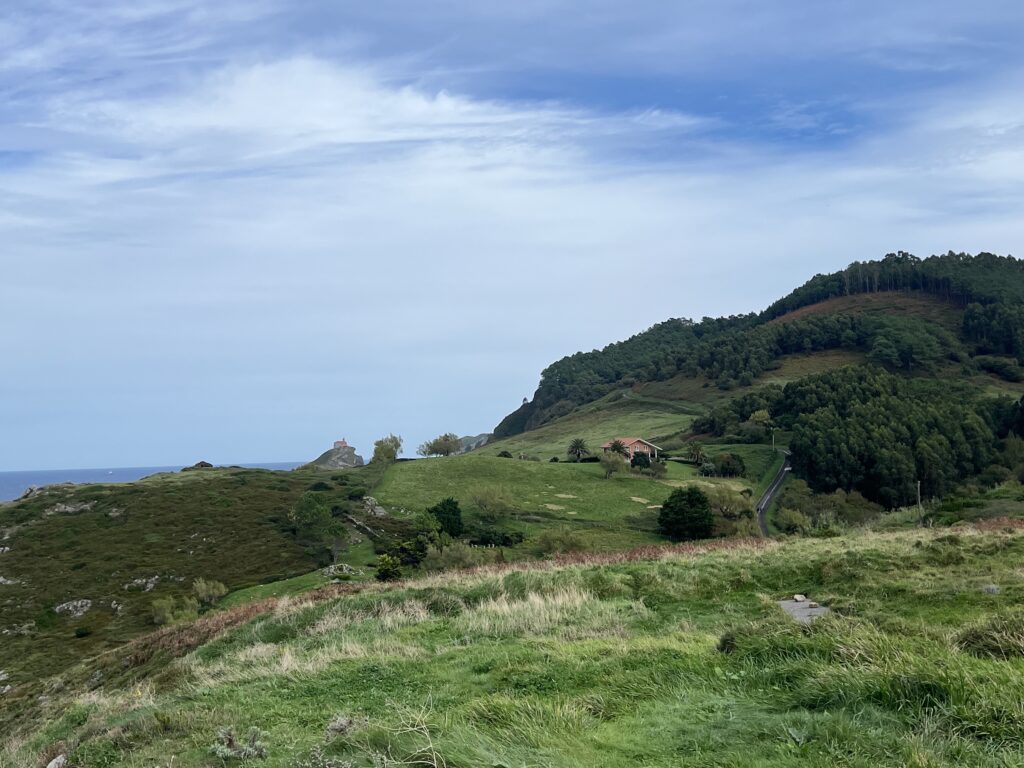
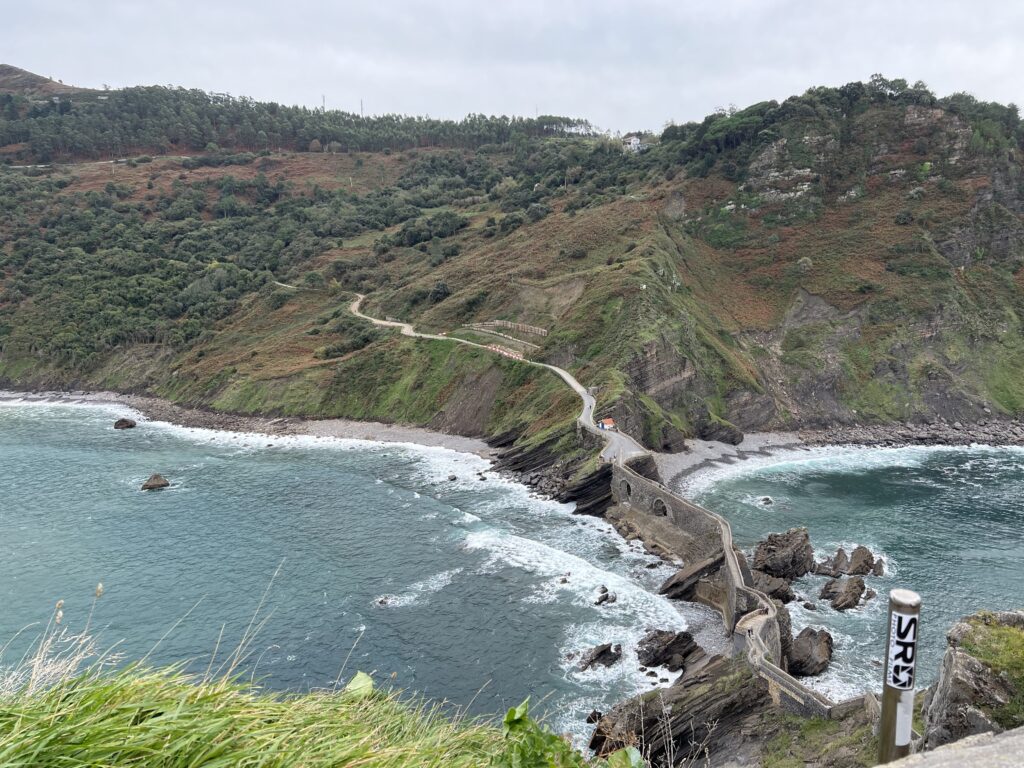
Conclusion
Visiting the north of Spain allowed me to gain a different perspective of the country. The Basque Country is also steeped in a peculiar history given its language and then political issues as well tied to sovereignty and freedom.
There definitely was a Basque immigration to the island of Puerto Rico but for me personally I have yet to make a connection to this part of Spain. The only potential surnames so far in my tree that might be tied to this region are Mojica and Irizarry.
Besides that I was glad I was able to visit these towns in the north and would love to see how the Basque country feels and looks like in the summer! And who knows, maybe one day I will find a connection to this region!

